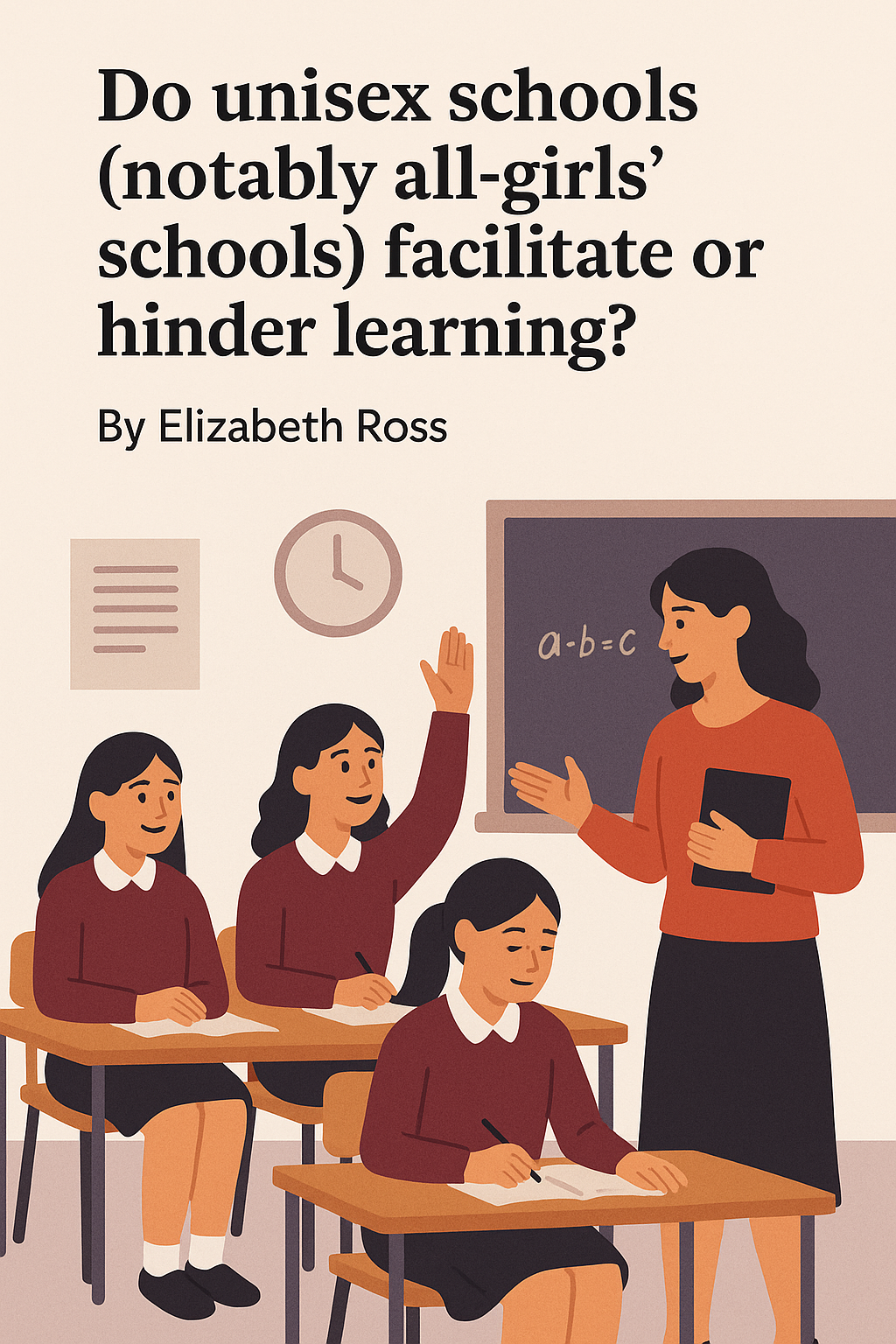Do unisex schools facilitate or hinder learning?
Unisex schools are very common in the UK (and US), unlike in the rest of Europe where they are almost non-existent. Many people seem to believe that single-sex schools are better academically but worse on a social level.
Attending an all- girls secondary school myself, I found that the nurturing environment in the classroom boosted my confidence . Generally, girls are more hesitant to voice their opinion and seem to be less confident than boys. Therefore, girls often need a different, more encouraging, style of teaching than boys who may need stricter teaching methods. Of course, this is a huge generalisation and every student is different. However, on the whole, research bodies such as NASSPE (National Association For Single Sex Education) have found this to be true.
Moreover, in an all- girls school, there are no boys to distract the girls. This can result in girls being more focused on their studies and less focused on their image since there are no boys to impress. However, this absence tends to make some girls more obsessed with boys, who develop an idealised view of boys, seeing them almost as a different species. In fact, the teachers at my school would try and tempt us to go to events by telling us that boys would also be attending and some girls would gossip about which male teachers they found attractive. Indeed, once, in Year 7, someone found out that there were boys playing football in the school fields so everyone applied make up and stuffed their bra with tissue before rushing out to see these boys as if it were a once in a life time opportunity (!).
On the positive side, the fact that there are no boys to compete over could reduce the “bitchiness” amongst girls , since girls’ spiteful behaviour often derives from jealousy. However, this catty behaviour is often common in all- girls’ academic schools since girls compete academically and often are mean to those who achieve higher results than them (similarly out of envy). Indeed, two of my best friends from primary school went to very academic all- girls’ secondary schools and both of them were unhappy there, complaining that the atmosphere was too “intense” and “cliquey”.
Moreover, eating disorders such as anorexia and bulimia are more common in very academic all- girl’s schools and especially in all- girls’ boarding schools, which could suggest that an all- girl environment can be unhealthy since girls will not only compete over results but also over their weight. Indeed, being a boarder for the first few years of secondary school, I found that many people compared their weight at the weigh-ins every term and this created an unhealthy atmosphere. In fact, about 10% of the students in my year group suffered from an eating disorder ,which is extremely high. It could be argued that competition over boys is replaced by competition over academic success and body mass index.
It seems to me that there are advantages and disadvantages of single sex education and which is “right” depends on the student and not on the school.
FΩRMIdea London, 13th October 2015.















